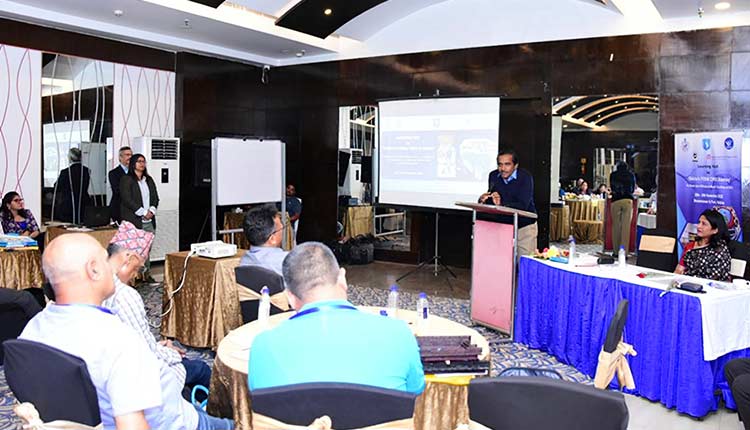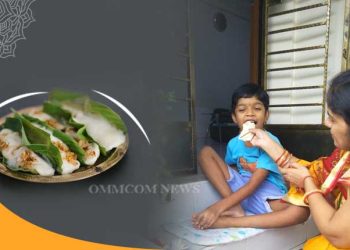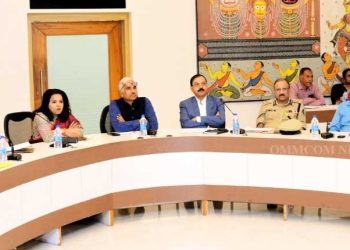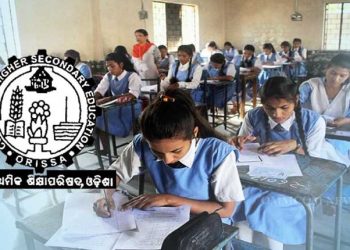Bhubaneswar: Odisha has now emerged as a frontrunner in implementing decentralised, inclusive and community-led sanitation programmes – a model which has been evincing keen interest among other states and also neighbouring south Asian countries.
The Odisha Water Academy (OWA), a Centre of Excellence in Water & Wastewater management, set up under the aegis of the Housing & Urban Development (H&UD) Department and Water Corporation of Odisha (WATCO) hosted a three-days Learning Visit to Odisha on inclusive Faecal Sludge and Septage Management (FSSM) journey in collaboration with the Administrative Staff College of India (ASCI) Hyderabad on 28th-30th November 2022, said an official press release.
As part of this exposure-cum-learning visit, a multi-disciplinary team of 30 delegates (Policymakers, senior officials, Mayors, and practitioners) from the Government of Nepal along with experts from UN Habitat/World Bank and faculties from ASCI visited Bhubaneswar and Puri to understand the implementation of City-Wide Inclusive Sanitation (CWIS) across the sanitation value chain.
It included learnings from Odisha’s enabling policy framework, structural reforms, inclusive approach by engaging with women and transgender as community partners and adoption of low-cost technology-driven nature-based solutions.
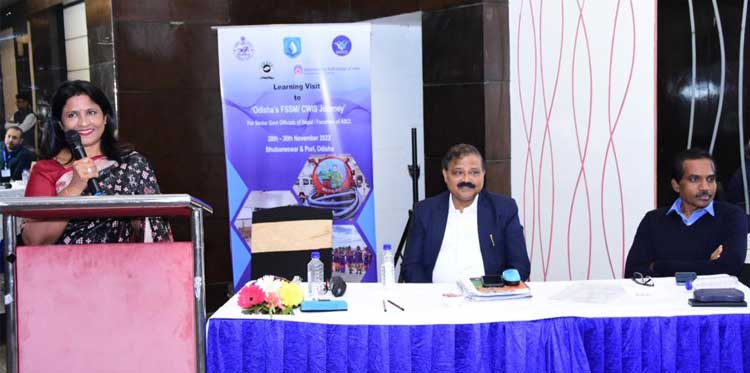
Addressing the inaugural function on Monday, Mayor of Bhubaneswar Municipal Corporation (BMC) Sulochana Das highlighted the importance of political leadership and commitment of Chief Minister Naveen Patnaik, community participation across various urban programmes and empowerment of women and transgender SHGs in ensuring sustainable sanitation services.
In his keynote address, Principal Secretary, H&UDD and Chairman of OWA, G Mathi Vathanan emphasized that strong political leadership, decentralized approach and community participation have paved the way for success in the water and sanitation value chain in Odisha.
The flagship projects of the State Government such as the Drink From Tap Mission, and Jaga Mission have been recognized at the national and international forums and are founded on the principles of fairness, equity, equality, saturation, mutual trust and respect along with empathy for urban poor in urban service delivery, he explained.
Further, building capacities of all stakeholders and institutions including ULBs is critical to creating an enabling ecosystem to provide affordable and sustainable services, he added.
Senior officers of H&UD Department, Sangramjit Nayak, Director Municipal Administration, Kalyan Rath, Spl. Secretary and Mission Director, SBM(U) enlightened the participants on the uniqueness of Odisha’s urban sanitation journey, the need for innovative policy deployment, leading practices in solid and liquid waste management, mainstreaming of women and transgender collectives in O&M and service delivery, replicability and scaling up of this approach across all ULBs.
While interacting with the delegation, PK Mohapatra, EIC, Odisha Water Supply & Sewerage Board (OWSSB) explained various aspects of technology and financing options to avoid high CAPEX and adopt low-cost nature-based technology solutions in a developing country like India. Dr Santanu Rath, Director, OWA facilitated the learning visit and set the context for the programme.
The Odisha model has attracted many such senior officers from the Government of India, UP, MP, Uttarakhand, domain experts from UNICEF, USAID and Practical Action and neighbouring countries in the recent past to visit and learn from the success story.



